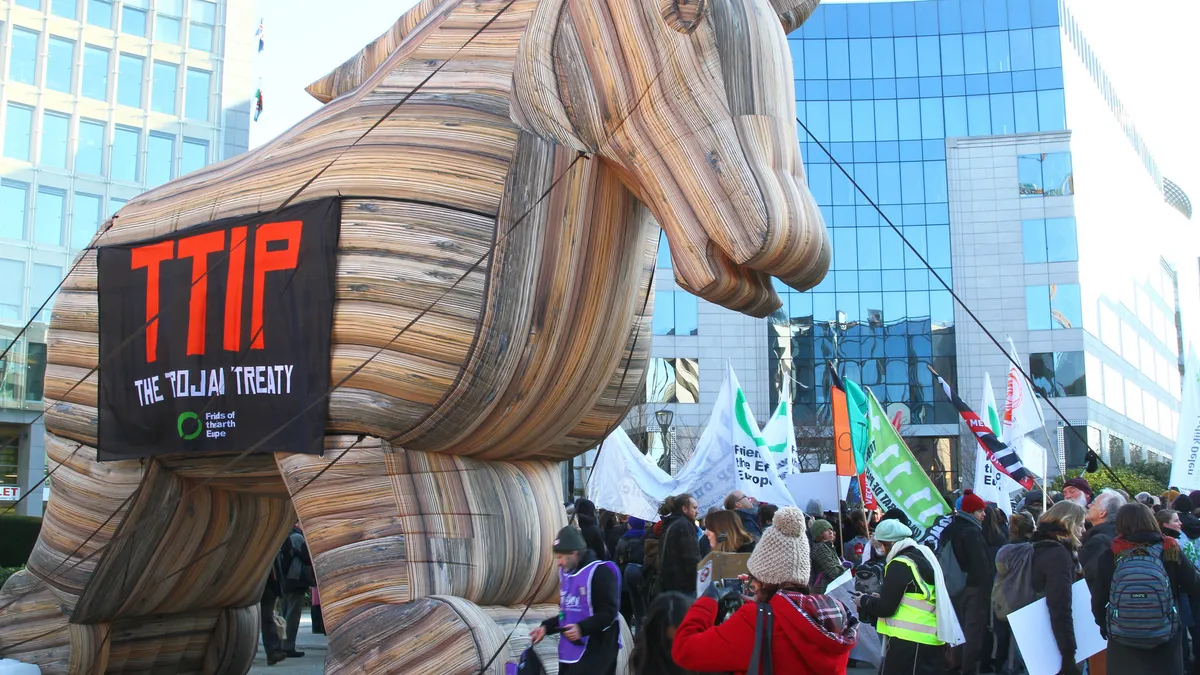Dive Brief:
- Germany's second in command on Sunday claimed attempts to create a U.S.-EU trade zone had failed, since popular opinion in both regions was in opposition and the governments were far from agreement on the 27 chapters in the potential accord.
- The Transatlantic Trade and Investment Partnership, better known as TTIP, would create the world's largest free trade zone and boost trade between the blocs by as much as 50%, according to a joint European Commission and White House report.
- Negotiations began in 2013 with strong support from business groups on both sides of the Atlantic supporting the agreement, but recent political upheavals have soured the climate for international trade agreements. The European Commission and the U.S. Trade Representative have not commented on the German official's assessment.
Dive Insight:
Trade barriers between the U.S. and the EU are already at some of the lowest levels worldwide, but the TTIP promised to harmonize regulatory restrictions and significantly reduce non-tariff barriers to trade and investment between the two economic powerhouses.
For supply chain managers, this would have likely meant lower export and import costs as well as higher trade volumes given increased availability of small-and-medium-scale buyers or suppliers in the foreign market. Meanwhile, a confirmed failure of the talks could be disastrous for pro-trade advocates as it could further move public sentiment to oppose the agreements in general, and threaten the already-concluded TPP as well.
Nonetheless, the German Vice Chancellor's comments provided a unique, albeit bleak insight on the trade talks' status. The top official claimed one of the main issues was U.S. intransigence over key issues, such as food labeling policies that protect certain wines and cheeses from competition in Europe.
The U.K.'s decision to leave the EU had potentially the most disastrous effect on the agreement: the key U.S. ally lost its leadership voice in many European institutions, all the while legitimizing the various anti-globalization forces in Europe.
Since then, although perhaps independently, popular forces have risen against the agreement in France and Germany. The Wall Street Journal reports France's Prime Minister called the TTIP a "breeding ground for populsm." Meanwhile, upcoming elections in Germany and the U.S. threaten to derail any progress.
The two parties originally hoped to conclude the agreement by the end of 2016 so as to avoid a new U.S. administration and the proximate German elections, but such a result appears increasingly unlikely.














